#titinius
Text
BEWARE.....them

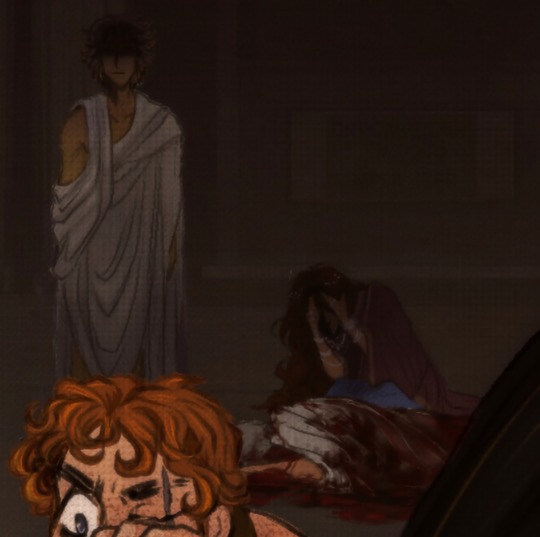
[ Ides 2023 that deserves a repost]
Foreground: Cinna, Casca, Decimus, Brutus, Metellus, g.Casca, Titinius, Cassius
Background: Antony, Calpurnia, Caesar- at least.. it WAS Caesar. 🫡🙏🏻😔
#julius caesar#republic comic#beware the ides of march#caesar needed to beware them#ides of march#cinna#casca#decimus#brutus#metellus#g.casca#titinius#cassius#antony#calpurnia#caesar#lucius cornelius cinna#publius servilius casca longus#decimus junius brutus albinus#marcus junius brutus#metellus cimber#gaius servilius casca#marcus antonius#calpurnia pisonis#gaius julius caesar
34 notes
·
View notes
Text
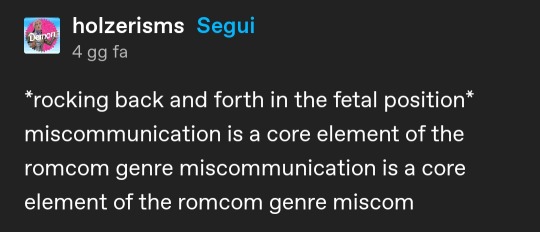
Titinius from Julius Caesar.
10 notes
·
View notes
Text
27 notes
·
View notes
Text
Credit to abraxas-calibrator OBVIOUSLY. Someone posted it on insta and I couldn't resist

#julius caesar#cassius#brutus#decimus#calpurnia#flavius#casca#marullus#titinius#cinna#antony#aniyah#gaius cassius longinus#marcus junius brutus#calpurnia pisonis#lucius caesetius flavus#lucius cornelius cinna#publius servilius casca longus#gaius epidius marullus#marcus antonius#aniyah the soothsayer#decimus junius brutus albinus
28 notes
·
View notes
Text
The snail in my ear is angry today
0 notes
Text
Julius Caesar Act IV scene iii is still one of THE most scenes of all time however those guys have got to stop using second person because over the weekend some friends and I performed the play for ourselves and every time Brutus said "Brutus" and Cassius said "Cassius" all I could hear was Elmo
#still the best play#shout out to Luke for calling titinius “tittyus” over my dead body#shakespeare#julius caesar
14 notes
·
View notes
Photo

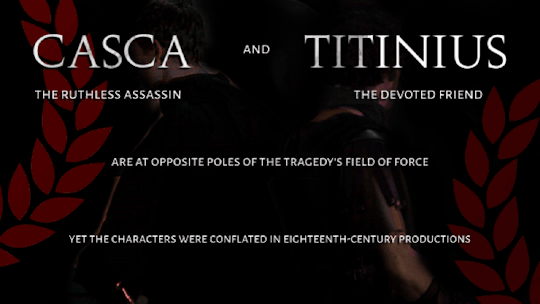

The March dawn in Rome is the dayspring of republican hopes; the fading October day at Philippi marks their final defeat. Casca's assertive tones in the brief argument of 2.1 are words as gesture, and pass easily into the flourishes with which his sword cuts the air: first a little to his right, then a little to his left, lastly straight ahead in the direction of the Capitol where, a few hours hence, he will plunge it into Caesar's neck. The three bold movements combine the preliminary actions of a swordsman before a duel with the ritual gestures of a priest wielding the sacrificial knife. In contrast to this expectancy of voice and gesture, the long vowels and weighty monosyllables of Titinius's lament have a solemn finality that makes us feel the tide in men's affairs has exhausted itself on a rocky shore. At the end of the earlier passage, Brutus advances into the group of conspirators, and his hands and theirs are clasped in a complicity that will turn to deadly action when Casca strikes in earnest: 'Speak hands, for me' (3.1.76). On the battlefield, Titinius's cry 'Oh my heart!' sets the tone for the passage quoted and for the play's remaining scenes, dominated as they are by an impassioned fidelity which was thought literally to have its seat in the heart, and which finds its most eloquent expression in the Liebestod of Cassius and Titinius.
M.M. Mahood, Playing Bit Parts in Shakespeare
#shakespeareedit#Julius Caesar#tragedies#personally I like it better to have titinius and casca as seperate characters and I'm happy we mostly do that nowdays#but the passage's idea of setting them up as mirrors of each other and two parts of a single cycle really intrigues me#rotating them in my mind.#still really into it as a double-casting choice tbh#also kind of laughing at ''casca the ruthless assasin'' given I just think of him as my Special Little Guy#my edit
18 notes
·
View notes
Text
in today's letter: ok i will say. this letter and the one to brutus posted yesterday were written around the same time as one another and i chose to put them in this order because i think [depressing letter to cassius -> slightly less depressing letter to brutus -> maybe cicero is feeling a bit better now?] is less narratively interesting than [depressing but optimistic letter to brutus -> straightforwardly depressing letter to cassius -> i personally get the vibe that cicero is being more realistic about things with cassius. or doesn't want brutus to completely freak out]. also the letter to cassius comes second because cassius' is brutus' shadow self. and it's my translation and i get to choose the letter order that is narratively compelling to Me
ANYWAY. some guy has completely left behind his life in rome to go and join sexy sexy cassius in syria—and that guy is maybe titinius! who the fuck is gaius titius strabo! cicero recycles some of his letter to brutus! it's all going to shit!
about e-pistulae | previous letters | subscribe to emails from cicero?
14 notes
·
View notes
Text
Brutus stabbing his best friend to death while Caesar looks him in the eye and asks "You too?" and all that led up to it may be deeply homoromantic but its got nothing on Titinius who, in the same play, leaves Cassius to go check and see how an army camp is doing, comes back to find Cassius has killed himself, so he lays a wreath of victory on Cassius brow, stabs himself, and dies right next to him.
#we really gloss over that though. I read it for the first time in 9th grade and was like “were not really just gonna skip over that are we?”#then we did#Julius caesar#ides of march#et tu brute#brutus#cassius#shakespeare
11 notes
·
View notes
Note
hi! can you please make a list of ancient roman inspired names, including some that are less common/not straight from mainstream mythology? thank you!
— 𝐀𝐍𝐂𝐈𝐄𝐍𝐓 𝐑𝐎𝐌𝐀𝐍 𝐍𝐀𝐌𝐄𝐒
below is a list of ANCIENT ROMAN inspired names. they are in alphabetical order, and split into 'masculine' and 'feminine' and 'unisex', for easier access. please LIKE / REBLOG if you find this list useful!
— 𝐌𝐀𝐒𝐂𝐔𝐋𝐈𝐍𝐄
Accius
Acilius
Acutius
Adiutor
Aedius
Aelianus / Aelius
Aemilianus / Aemilius
Aetius
Africanus / Afranius
Agathus
Agellus
Agricola
Agrippinus
Ahenobarbus
Akylas
Akylinos
Albanos / Albinianus / Albinius / Albinos
Alexinos / Alexinus
Amadias
Amicius / Amicus
Ampliatus
Ancus / Anicius
Annalis
Ansanus
Antoninos
Aphrikanos
Aquillius
Arrius
Arruns / Arruntius
Asper
Attius
Aufidius
Augoustinos / Augoustos
Augur
Aulos
Aurelianos / Aurelios
Aurius
Ausonius
Balbinos
Basolus
Bassianus
Bibulus
Blaesus
Blossius
Bonus
Britannicus
Broutos / Brutus
Caesarion
Calpurnianus
Caninius / Canius
Capito / Capitolinus
Cartilius
Carus
Carvilius
Casca
Castricius
Castus
Catullus
Caudex
Ceionius
Cicerón
Cincinnatus
Cinna
Clateus
Clodius / Cordius
Corellius
Coriolanus
Cornificius
Coropas
Corvus
Cossus / Crassus
Curius / Curtius
Dacianus / Dacius
Damasippus
Damasius
Datius
Decius
Defendens
Dentatus
Diaulus
Diocletius
Dolabella
Drousos / Drusianus
Equitius
Eulalus
Eumachius
Favian / Favonius
Martinos / Martius
Marullus
Maternus / Maturinus
Maxentios / Maximinos
Memmius
Messala
Metellus
Mettius
Minatus
Minervinus / Minervius
Miniatus
Minius
Montanus
Mucius
Munatius
Natalis
Naucratius
Necessitus
Nerius
Neron
Neroua
Nervas
Noma
Novatus / Novius
Numerius
Nymphias
Opimius
Opiter / Opiternius
Oppius
Optimus
Orestinus
Ostorius
Oualentinianos / Oualentinos / Oualerianos / Oualerios
Ouespasianos
Ouiktor
Oursos
Ovius
Paccius
Patrobas
Paulinos / Paullus
Pergentinus
Pertinax
Phabianos / Phabios / Phabrikios
Phaustinos / Phaustos
Phillipus
Phloros
Phourios
Pictor
Plautus
Pompo
Pontios
Poplios
Poppaeus
Portian / Portius
Poublios
Priscillus
Priskos
Probus
Processus
Proculus
Propertius
Pupillus
Quartus
Quintianus
Quiricus
Radix
Regoulos
Romanicus
Romulan / Romulanus
Roscius / Rosius
Rouphinos / Rouphos
Rullianus / Rullius / Rullus
Rupilius
Russus
Rutilius
Sabinos
Salinator
Sallustius
Satorninos / Satourninos
Savinus
Sawiris
Scaurus
Scribonius / Scribonus
Sedulius
Sekoundos
Sempronius
Senekas
Seouerianos / Seouerinos / Seoueros
Seppius
Serenos / Serenus
Sergios
Serouios
Sertor
Servilianus / Servilius
Servios
Severianos / Severinos / Severos
Silius
Sosius
Sporus / Spourios
Statilius
Statius
Sulpicius
Surdinius / Surdinus
Symphorus
Tarkynios
Tenagino
Terentios
Thrax
Tiberinus
Tibullus
Titinius / Titius
Torquatus
Toullios
Trebius
Turpilius
Ulpian
Ummidius
Valentinianos / Valentinos / Valerianos / Valerios
Varro / Varus
Venustian / Venustianus
Verus
Vespasius
Vettius
Vicesimus
Vinitius
Vipsanius
Viridianus / Viridius
Volesus / Volsus
— 𝐅𝐄𝐌𝐈𝐍𝐈𝐍𝐄
Accia
Aconia
Acutia
Adelphasium
Aedia
Afrania / Africana
Aimilia
Akylina
Albinia
Amica
Anicia
Aniensis
Annia
Appia
Aquilia
Arria
Arruntia
Atia
Aufidia
Aula
Aureola
Auria
Avidia / Avita
Blanda
Caenis
Caesillia / Caesula
Caia
Caietana
Capitolina
Cartilia
Carvilia
Cassiana
Castricia
Ceionia
Cordia
Corellia
Cornificia
Crispina
Curia
Cypriana
Dacia
Domitiana
Drusiana
Eumachia
Felicula
Ferocia / Ferocilla / Ferocina
Floridia / Floridiana
Furia
Furnia / Furnilla
Fusca
Fuscinilla
Hostilia
Iaia
Ianouaria
Invidia
Ioulia / Iouliana
Ioulitta
Iuventas
Januaria
Joviana
Kaikilia
Kouinta
Lepida
Licinia
Livilla
Lollia
Loukilla
Loukretia
Lucillia
Luciola
Maecia
Mamerca
Mania
Materna
Maxentia
Maximiana / Maximina
Mercuria
Messalina
Metella
Mettia
Milonia
Mucia
Munatia
Naevia
Necessitas
Neruia
Novia
Octaviana
Opimia
Oppia
Orestilla
Orestina
Oualentina
Oualeria / Oualeriana
Phabia / Phabiana
Phausta / Phaustina
Pompeia / Pompilia
Poppaea
Potita / Potitia
Procula
Pulchra
Quadratilla
Quarta / Quartilla
Quieta
Quinta / Quintia / Quintiana
Quintilia / Quintiliana
Romilia / Romula
Roscia / Rosia
Rupilia
Rutilia
Sagitta
Sallustia
Saturna
Scaura
Scribonia
Sebine
Secunda / Secundilla
Sedulia
Semperbella
Sempronia
Seouera
Sertora
Servilia
Severa / Severiana / Severilla
Statilia
Stellatina
Sulpicia
Surdinia
Sympherusa
Symphora
Tatia
Terentia
Tiberia
Tita / Titia / Titinia
Tuccia
Turia
Ulpia
Ultima
Vipsania
Viridia / Viridiana
Vistilia / Vitalina
Vitellia
Volesa / Volusa / Volusia
— 𝐔𝐍𝐈𝐒𝐄𝐗
Agrippa
Aquila
Glaucia
Iovita
Merula
145 notes
·
View notes
Text
🏛🗡🤭HAPPY IDES OF MARCH FROM THE BOYS🤭🗡🏛
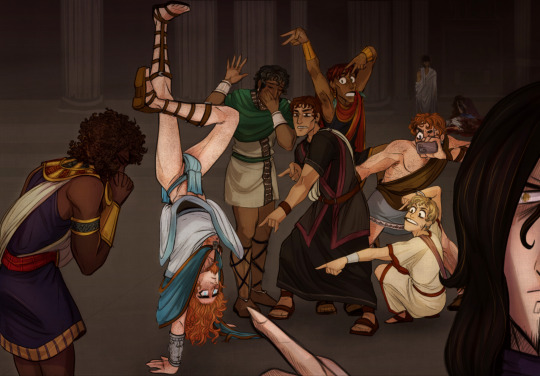
nothing is happening in the background what are you talking about haha- ha.🤫😶🌫️
#julius caesar#republic comic#beware the ides of march#ides of march#casca#cassius#cinna#brutus#decimus#metellus#titinius#calpurnia#antony#gaius casca
27 notes
·
View notes
Text

[Jeffrey Murray, Valerius Maximus on Vice: A Commentary on Facta et Dicta Memorabilia 9.1-11]
#hello! i was thinking of 'accipe me fati tui comitem' so i opened the exact text that will make me chew on furniture#titinius#gaius cassius longinus#valerius maximus#articles/books
4 notes
·
View notes
Text
who lives, who dies, who tells your story: a write up of new swan shakespeare's julius caesar
it's been a while since i watched a live production of shakespeare! and i hadn't really expected to spend this interval of my summer doing so, but the new swan shakespeare festival at UCI was doing julius caesar, which, if you know anything about this blog, is like my number one most favourite shakespeare play. so of course i had to go see it. and you can go see it, too, if you're in socal, alongside their production of as you like it, and the complete works of shakespeare (abridged) (which, if you've ever seen the reduced shakespeare company's filmed version, is really hilarious).
why is julius caesar my favourite play? i mean, besides the homoeroticism in the text between brutus and cassius (#brutecass4lyfe), julius caesar to me is just one of the most human of tragedies, one of the most prescient political dramas ever done. back in 2017, shakespeare in the park did a JC production that, controversially, portrayed the man as a donald trump-type figure. and you know what, they've got a point. julius caesar was a populist. literally, his faction was called the populares; he claimed to represent the will of the people, but ultimately was taking power for himself.
granted, brutus and cassius themselves were not scrappy revolutionaries trying to change the world for the better, for all that brutus likes to cloak himself in honour and high-minded ideals. their faction, the optimates, were of the ruling class in rome. they represented the people in power who disliked caesar's broader appeal. shakespeare (via cribbing from plutarch) points out that many of the optimates were simply mad they did not seize power the way caesar had. cassius was indeed born as free as caesar, with as many of the privileges and ruling rights as caesar; why should cassius bend the knee to caesar when the bitch can't even swim?
brutus, idealist that he is, also could not justify bending the knee. he did not want to lose his own power, though he couches it in shakespeare as a wish to remain free. it's through brutus' rhetoric about freedom that we get the idea of brutus and cassius as revolutionaries, when in truth all they wanted was to return to the pre-caesar status quo. and when they determined that the best way to usher in the revolution is through violence and bloodshed, they set forth the main tragedy of the play: that a revolution begun in blood will end in blood. we've seen this play out throughout the centuries: the french revolution, the russian revolution, pretty much every violent coup that ends in repressive regimes. as long as there are despots, there will be fodder for julius caesar productions. (cassius was onto something when he wondered how many times their actions would be played out in the future "in states unborn and accents yet unknown"!)
this timelessness was felt in the new swan production. the costuming was at parts roman-inspired, though not all the way through--people wore tunics reminiscent of southeast asian clothing, or hoods and masks, or--in the second half of the play--military camo atop their tunics marking their allegiances. one notable setting was the one for octavian and antony's conversation, set in what looked like a public bath. another notable costuming choice was caesar's majestic outfits--flowing, regal, queenlike.
the production notes mentioned a deliberate casting decision of 50-50 male-female roles, with antony, caesar, and cassius notably played as female, with their pronouns changed in the text to refer to them as female. calpurnia, caesar's wife, is taken out of the text and her lines given to lepidus instead, and the characters refer to him as caesar's husband--which does cause an interesting dynamic when lepidus says non-calpurnia lines in the bathhouse scene with antony and octavian. other roles were also condensed--cinna the conspirator was taken out of the text except in the scene with cinna the poet, titinius (our beloved plothole man) had his lines given to metellus cimber, and some of strato's lines were given to casca. also, strato's role in holding brutus' sword is entirely excised, which means that brutus stabs himself at the end, rather than implicate someone else in his death.
all in all, these changes led to a tighter-paced production, where the side characters like casca and metellus cimber were given more of a character arc than in the original. giving titinius' role to metellus cimber, for example, made cassius' death make more sense, because there was already established rapport between metellus cimber and cassius in the first part. (i would argue that in this production casca and cassius had more chemistry, though...)
another notable doubling choice was giving caesar's actor the lines for cinna the poet. i think that was striking for the production, because it made cinna the poet's death at the hands of the mob have a striking implication for this caesar's. who deserves to die, and who was just an innocent caught at the mercy of mob justice? was it only cinna? or was it caesar and cinna? if you ask mark antony, of course, she would say it was both of them. this production's mark antony did an excellent job in taking control of the narrative after caesar's death. i'm used to JC productions going to intermission after caesar's burial, but new swan deciding to do so after the dogs of war monologue certainly told me that that was the turning point--that by letting antony have any share in the narrative, brutus had signed the death warrant for his ~perfectly justified~ revolution. his idealism--his persistence in "civility" and "playing fair", was his fatal flaw.
a couple other scattered thoughts:
i could see that the production was more firmly on the 'bromance' side of the brutecass debate.
which, fair, yes, that is how people have traditionally read the dynamic, but i'm always a good sucker for a cassius obsessed with brutus to the point of dragging him down the path of destruction with her, and would love to see a bit more of this cassius' manipulative ability.
this cassius is fiery, sarcastic, and i do love the way she sinks to her knees in the tent scene when she offers her heart for brutus to stab, but...
i don't think this brutus is quite picking up what cassius is setting down. he's a liiiiiittle bit too heavy on the stoicism. the passion that he showed portia in her ONE scene with him? that's what i would have liked to see out of him in the tent scene, and in that forever and forever farewell cassius scene.
maybe i've just got deranged brutecass brainrot, but i do feel like the devotion that the two characters express to one another in the text itself is part of shakespeare's sympathetic portrayal of them.
i mean, otherwise, all we've got of cassius and brutus is that dante thinks they're such horrible betrayers that they're now forever being chewed on by satan in the ninth circle of hell, next to judas freaking iscariot. brutus and cassius are, as far as classic lit is concerned, sharing the afterlife together.
that's why their devotion to one another in shakespeare's play is so compelling. it's like cassius' one redeeming feature, that he's so unerringly loyal to brutus and only thinks the best of him. while brutus allowed himself to be seduced into cassius' conspiracy, and his own devotion to honour ends up signing away their lives.
and yet when cassius tries to warn him against letting antony take control of the narrative, cassius was still too in love with brutus to actually put his foot down and say no and stop it.
also this production's portia stole the show. in her one scene she was just incredible. badass. girlboss. 100/10 no notes.
according to the dramaturg, who was sitting near us during this showing, this show's caesar was an understudy because the other actor got covid? you literally couldn't tell because this caesar was spectacular. such mean girl energy. regina george would've been proud.
anyway, go see the production! or go see new swan's as you like it, or the complete (abridged) works of shakespeare. there's plenty of showings for the rest of this summer, and you'll be in for some solid acting and good fun.
#lily reviews shakespeare performances#julius caesar#new swan shakespeare festival#uc irvine#p: julius caesar
7 notes
·
View notes
Photo
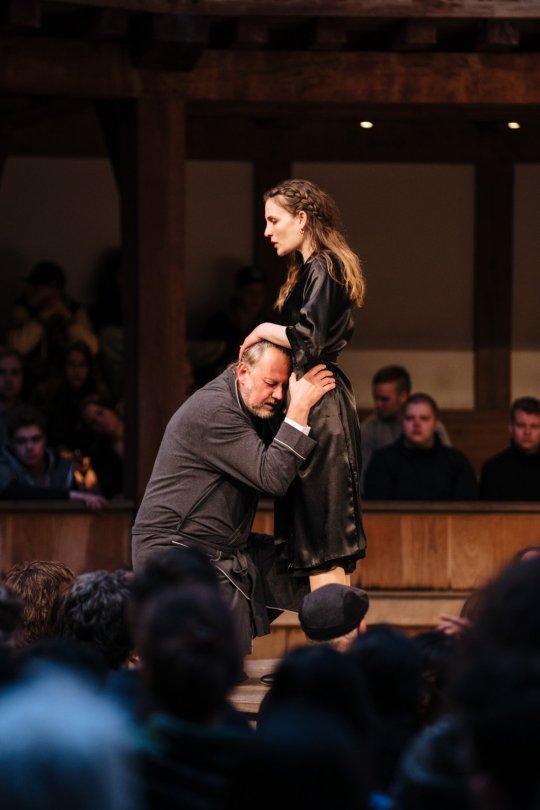




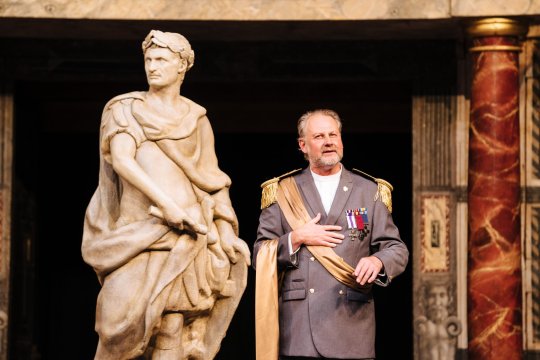
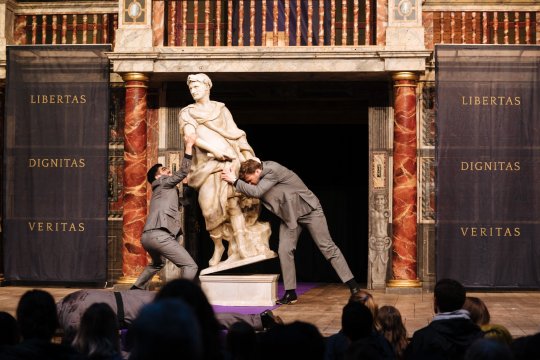

Julius Caesar pics part 2 (c) Helen Murray
Dickon Tyrrell as Caesar and Amie Francis as Calpurnia
Cash Holland as Titinius
Charlotte Bate as Cassius and Anna Crichlow as Brutus
Omar Bynon as Pindarus and Charlotte Bate as Cassius
Samuel Oatley as Mark Antony
Dickon Tyrrell as Caesar
Omar Bynon as Decius and Jack Myers as Casca
118 notes
·
View notes
Text
not me consistently misreading quintus titinius as quintus tinnitus. oh you know. quintus tinnitus, the ancient roman inventor of tinnitus!
8 notes
·
View notes
Note
In the context of the entire ASOIAF universe I think Daenerys is not a great person (well-meaning though — most of the time) but as a POV character she’s kind of fascinating. It’s hard not to root for her even though it probably would be best if she made different choices; though that wouldn’t make sense given who she is.
The sentiment about characters that make incorrect but understandable decisions is actually a very important one when it comes to writing characters. A character that made nothing but perfect decisions isn't interesting to follow - they're a computer. It lowers the stakes of any conflict because the reader knows that the characters won't make mistakes in judgement. Logical mistakes, that is, mistakes borne out of a character's beliefs, can give us tremendous insight into how the character thinks and what they value. Cassius commits suicide in Julius Caesar out of the mistaken belief that Titinius is captured, and it gives us insight into his character. Earlier, he and Brutus said they're probably not going to survive, and so Titinius's supposed capture is all the proof he needs in his failure - Cassius believes all hope is lost. History itself has turned on misunderstandings, so it isn't surprising to see it played out in fiction. It fulfills plenty of dramatic beats - a misunderstanding can be the height of comedy or the pits of tragedy, when done well.
Thanks for the question, Anon.
SomethingLikeALawyer, Hand of the King
22 notes
·
View notes